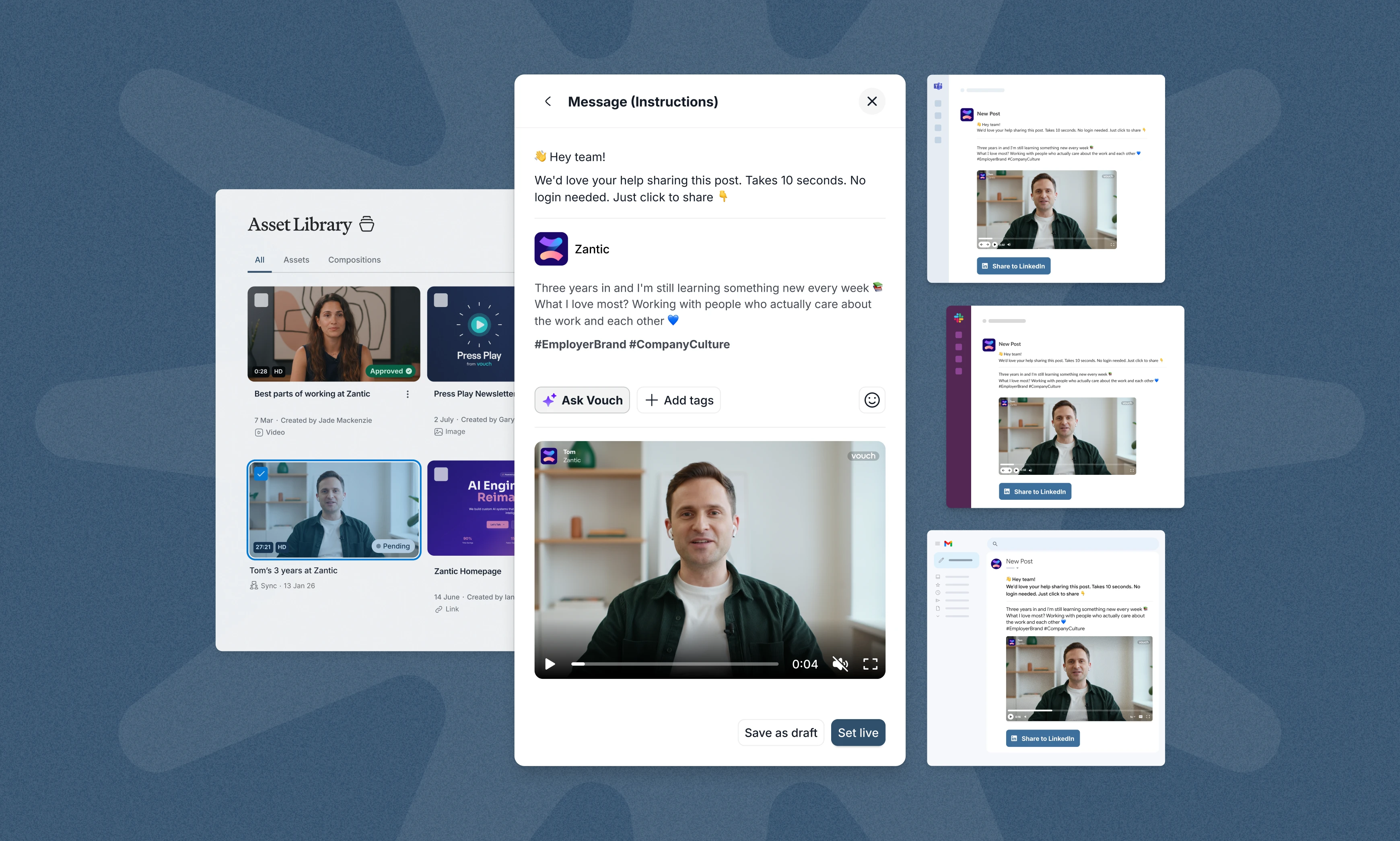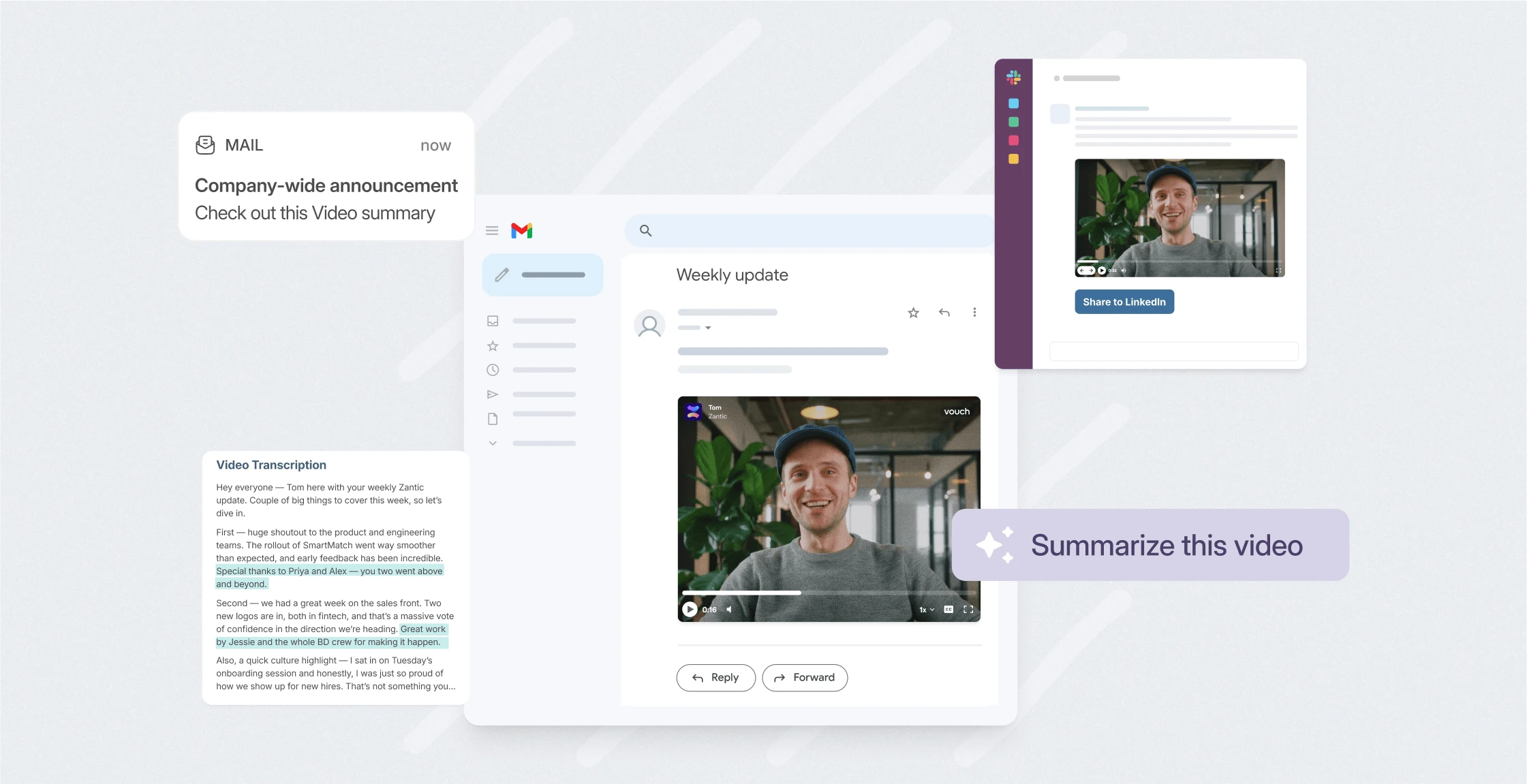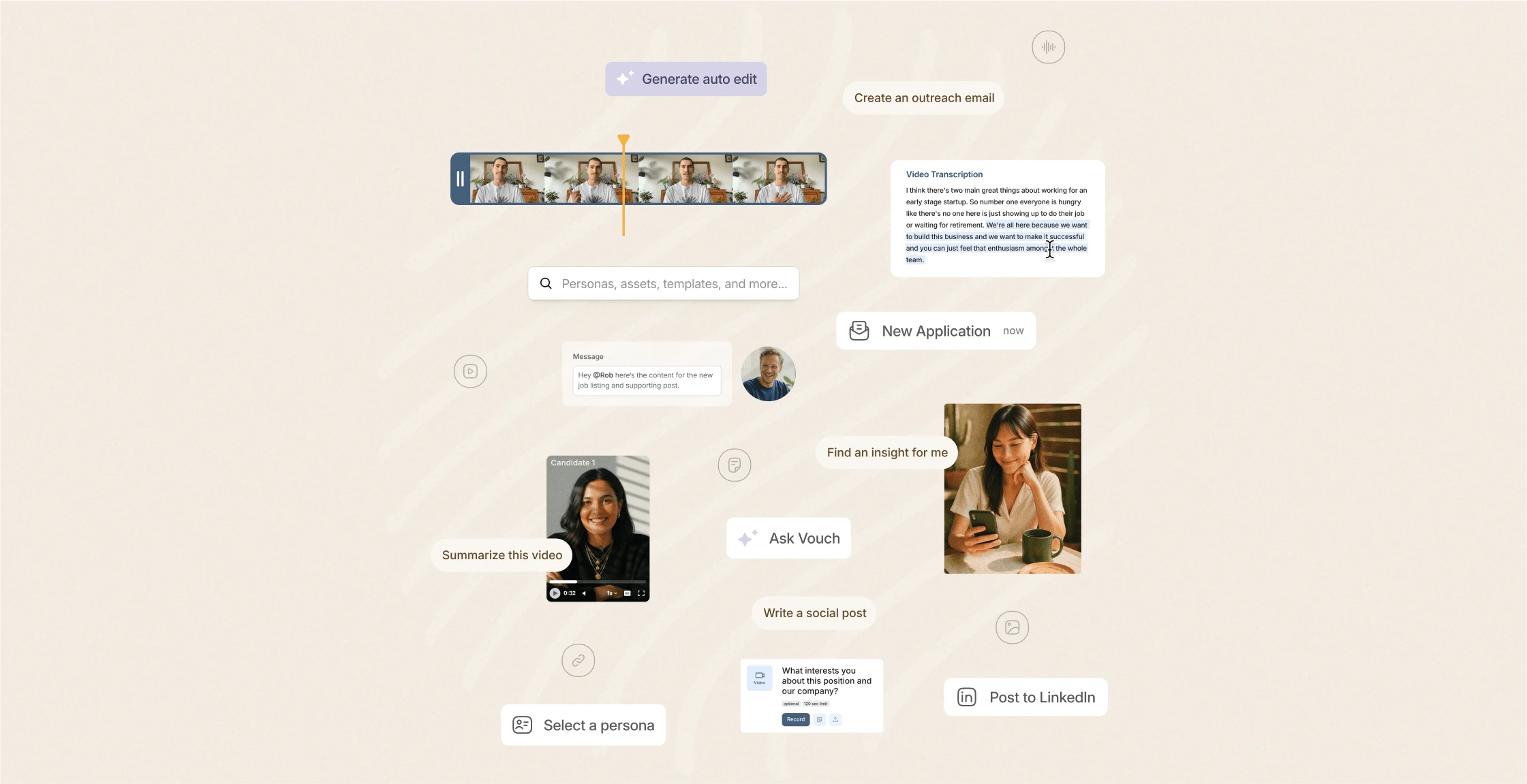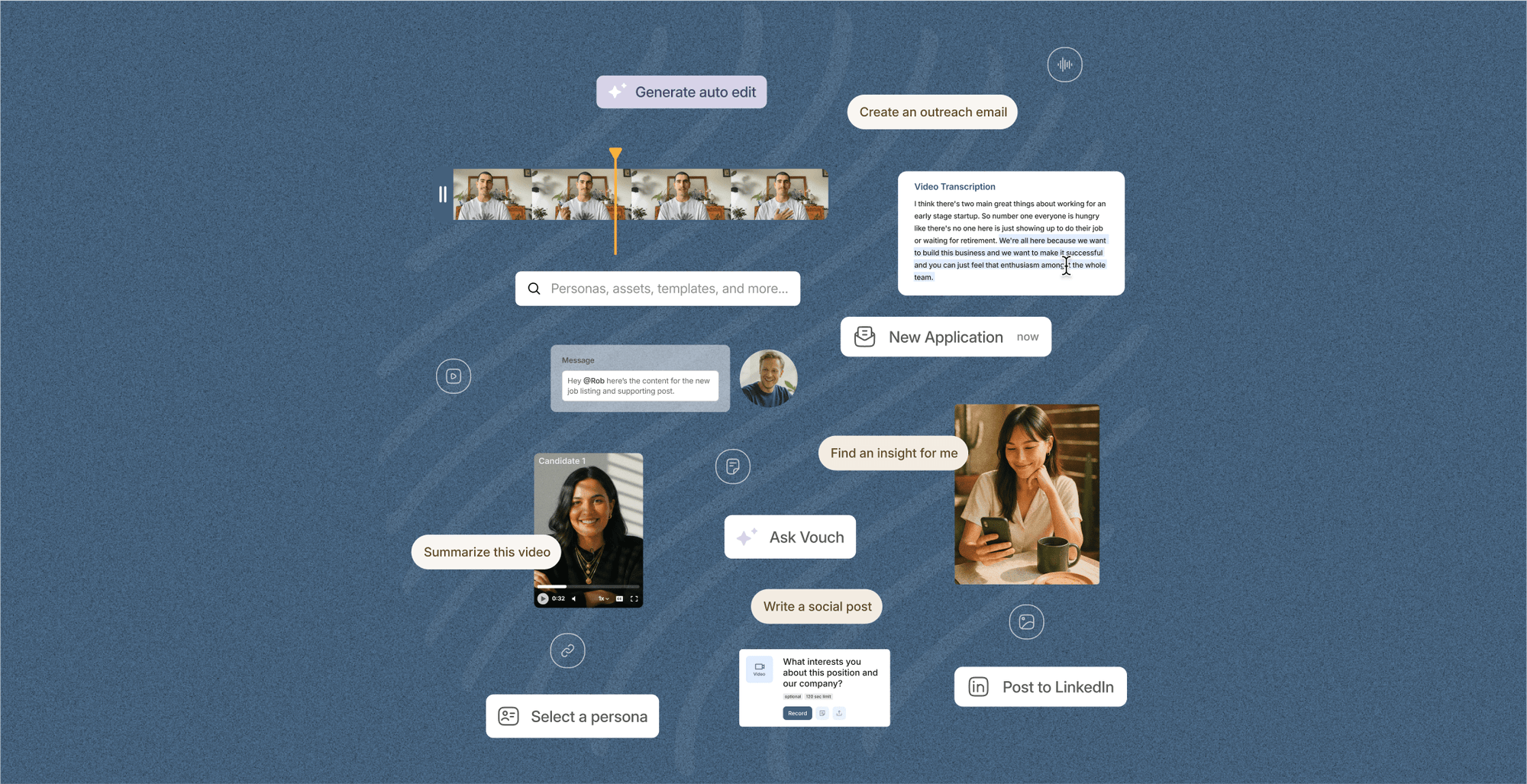As remote, hybrid and work-life continues to evolve in 2026, along with the entry of Gen Z, "workplace culture" is now one of the biggest challenges many companies face.
And in 2026, your workplace culture could be the biggest key to your success, especially when retaining great employees in a changing financial economy where inflation is outgrowing wages.
In this article, we dive deeper into workplace culture and explore how it impacts your Employer Brand and its significance in attracting and retaining top talent.
So let's get started.
6 reasons your workplace culture is crucial
Let's look at a negative or toxic workplace culture. It's easy to see how your company can have detrimental effects on your employees' mental health and well-being, leading to high turnover rates, low morale, and poor performance.
According to Gallup's State of the Global Workplace report, only 15% of employees worldwide are truly engaged in their work. This suggests that a significant portion of the global workforce may be disengaged, which can have a negative impact on productivity and overall workplace culture.
In today's competitive landscape, workplace culture is everything. Here's why:
1. Your workplace culture attracts top talent
In a highly competitive job market, top talent is always in high demand. A positive workplace culture can be a key differentiator for companies looking to attract and retain the best employees. Millennials and Gen Z, who comprise a significant portion of the workforce, prioritize workplace culture when choosing their employers.
Companies with a positive culture are more likely to attract top talent by offering an inclusive and engaging work environment where employees feel valued and supported.
2. Your workplace culture retains employees
Employee turnover can be costly for organizations, both in terms of time and money. A positive workplace culture can help companies retain their employees by creating a sense of loyalty and commitment. Employees who feel connected to their organization's culture are more likely to stay long-term, leading to reduced turnover rates.
3. A positive workplace culture increases productivity
A positive work culture fosters a sense of belonging and motivation among employees, resulting in increased job satisfaction and productivity. In contrast, a toxic work culture can lead to employee disengagement, absenteeism, and decreased productivity.
By promoting a positive work culture, companies can create an environment where employees are motivated to perform at their best.
4. Improves your company's reputation
In today's always-connected social media age, companies need to maintain a positive image and reputation. A strong workplace culture can contribute to this as satisfied employees are more likely to share their positive experiences with others, leading to a good employer brand perception. This can attract potential customers, partners, and future employees.
5. Your workplace culture drives innovation
A positive workplace culture promotes collaboration, open communication, and diversity of ideas. When employees feel comfortable sharing their thoughts and opinions without fear of judgment, it can lead to new and innovative ideas. This can give companies a competitive edge in the market and drive overall productivity.
6. Your workplace culture is your Employer Brand
Workplace culture reflects a company's values and beliefs, which directly drives your Employer Brand. Companies with a positive work culture will likely be seen as socially responsible and ethical, leading to a positive brand image.
The biggest company culture trends in 2026
Here are some of the top workplace culture trends that we can expect to see:
1. Further support for mental health and well-being
As awareness around mental health and well-being continues to grow, more companies are prioritizing the holistic wellness of their employees.
In 2026 we expect to see a greater focus on creating a supportive work environment that addresses the mental health needs of employees.
This may include offering mental health resources and benefits, promoting work-life balance, and fostering open communication about mental health in the workplace.
2. More diversity, equity and inclusion initiatives
In recent years, diversity and inclusion have become critical components of workplace culture. As we enter 2026, companies will continue to prioritize building diverse teams and creating an inclusive work environment for all employees. This may involve implementing policies and training programs that promote equity and inclusivity across all levels of the organization.
3. New flexible work options
The COVID-19 pandemic has accelerated the adoption of remote work and flexible work arrangements. This trend will likely continue, with more companies offering their employees (including new hires to attract top talent) the option to work remotely or have flexible schedules.
This can lead to increased job satisfaction, better work-life balance, and improved employee productivity.
4. Continued employee engagement initiatives
Employee engagement remains a top priority for companies looking to create a positive workplace culture, especially those with a global workforce. In 2026, we expect to see organizations implementing strategies and initiatives to keep their employees engaged and motivated.
This may include regular check-ins with managers, team-building activities, recognition programs, and opportunities for professional growth.
5. Further advancements in technology
Further advancements in cloud technology, AI and internet speeds will continue to shape workplace culture, companies are increasingly using artificial intelligence (AI) and automation to streamline processes, enhance communication, and improve the employee experience.
Virtual reality and augmented reality could be used for onboarding, training, and team-building activities.
The AI-enabled workspace for talent teams.
- Unified workspace for talent teams
- Accelerate hiring with AI tools
- Auto-generate polished hiring and employer brand content
- Easily repurpose assets across all channel
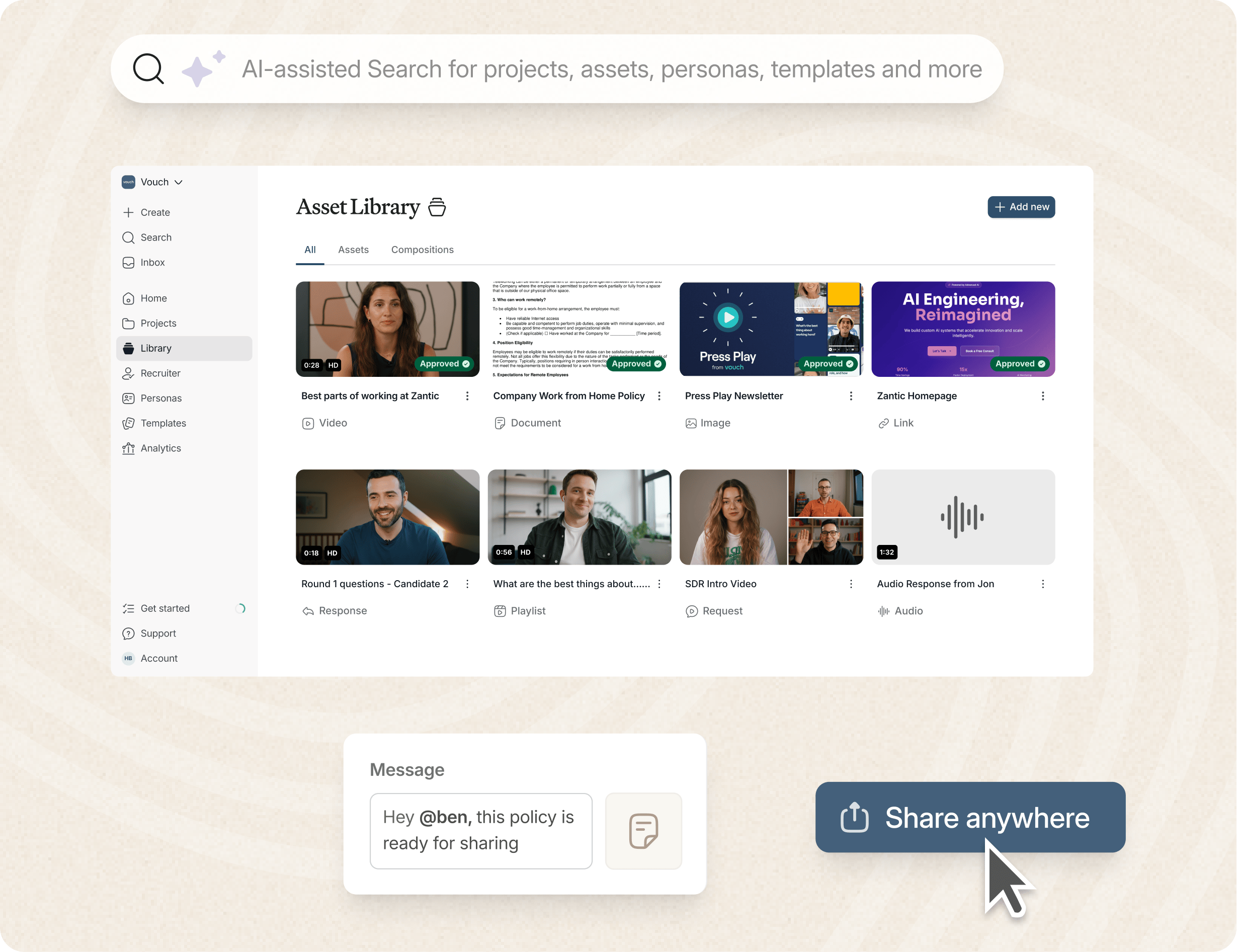
Understanding the changing dynamics of workplace culture in 2026
Workplace culture extends beyond core values and mission statements and can sometimes be hard to quantify. However, you still need to ensure you have checked off some key factors, no matter what size or shape your company is:
Changing workforce demographics
The workforce demographics have shifted significantly in the 21st century, with more diverse generations and cultures working together.
The rise of millennials and Gen Z has brought a new set of values to the workplace, such as a focus on work-life balance, social responsibility, and openness to change, which pushes the boundaries of traditional corporate culture.
This has led to a shift in traditional workplace norms and expectations, forcing companies to adapt their culture to attract and retain these younger generations.
Adopting artificial intelligence
Technology has transformed the way we communicate, with the rise of remote work and virtual teams being only the start.
Now in 2026, we have to consider AI and how it is changing entire industries and the people in them.
Talented employees will continuously adapt to technology, but there may be a section of your workforce who need help understanding AI and how to leverage it. For the sake of a positive environment and workplace culture, everyone in your company should be getting training on AI and how they can leverage it, too.
Changing societal values
Societal values have also played a significant role in shaping workplace culture in the 21st century.
Issues such as diversity, inclusion, mental health, and work-life balance are now at the forefront of discussions around workplace culture. If you aren't already, your company must address these issues to create a positive work environment that aligns with changing societal values.
Embracing continuous learning
Today, it's not only current employees who must continuously learn and evolve to stay ahead.
Companies also need to learn and evolve. This mindset means that companies that prioritize learning themselves have a better chance of retaining top talent and staying competitive in their industry.
Harnessing diversity in the workplace to maximize potential
A diverse workforce not only promotes inclusivity but also brings a range of perspectives, ideas, and experiences to the table. Here are some ways you can harness diversity in your workplace culture:
- To truly have a diverse workplace, companies must start with inclusive Employer Brand and hiring practices. This means actively seeking candidates from different backgrounds and creating a welcoming environment for all applicants. Inclusive hiring can also involve implementing blind recruitment techniques to reduce bias and ensure fair opportunities for employees.
- Leadership diversity is crucial in creating a healthy workplace culture. Companies should strive to have diverse representation at the upper levels of management, as this not only promotes diversity but also allows for a range of perspectives and ideas when making decisions.
- To create understanding and acceptance among employees from different backgrounds, companies must encourage open communication and empathy. This can involve training programs on cultural sensitivity and promoting a safe space for employees to share their experiences and viewpoints.
- Companies can also celebrate diversity through events, initiatives, or affinity groups that highlight different cultures, traditions, or identities within the workplace. This can help create a sense of belonging for employees from underrepresented groups.
- Diversity means nothing if all employees do not have equal opportunities for growth and development. Companies must ensure that diversity is reflected in their professional development programs, mentorship opportunities, and promotions.
Biggest challenges when improving workplace culture
Creating and maintaining a positive and supportive work environment is not without its challenges. Here are some potential roadblocks companies may face and how to overcome them:
1. Resistance to change
Implementing cultural changes can be resisted by employees who are used to a particular way of functioning. To overcome this, companies should involve employees in the process and communicate the benefits of the changes effectively. It's essential to listen to employee concerns and address them appropriately.
2. Lack of resources
Developing a healthy company culture requires resources such as time, money, and effort. However, smaller companies or those facing financial constraints may struggle with allocating enough resources towards this goal. In such cases, it's crucial to prioritize initiatives that will have the most significant impact on employee well-being and work towards implementing them gradually.
3. Generational differences
With a diverse workforce comes generational differences in attitudes, values, and expectations. Companies should take the time to understand these differences and find ways to bridge any gaps to ensure business success.
This could include offering different benefits or perks based on employee preferences and creating a culture of inclusivity where everyone feels valued regardless of age. This is not just a business strategy; it's a collection of attitudes.
4. Lack of leadership support
To successfully foster a positive company culture, leaders must be on board and lead by example. If there is a lack of support from top-level management, efforts towards building a healthy work environment may be less effective. Leaders need to prioritize employee well-being and actively participate in initiatives that promote a positive workplace culture.
FAQs
What Are the Different Types of Company Culture and Why Do They Matter?
There are several types of company culture, including innovative, market, clan, and adhocracy cultures. Each type shapes workplace norms, employee interactions, and overall business strategy. Understanding these types helps companies align their culture with corporate values and business goals, ultimately driving business success.
How Does a Strong Workplace Culture Influence Employee Satisfaction and Retention?
A strong workplace culture creates employee satisfaction by providing a supportive and inclusive environment. This leads to lower turnover rates as employees feel valued and engaged. Regular employee surveys and honest feedback help maintain a healthy culture, reducing the risk of disengaged employees and toxic workplace behaviors.
What Is the Role of Employee Recognition Programs in Building a Supportive Workplace Culture?
Employee recognition programs are crucial for building a supportive workplace culture. They acknowledge individual performances and accomplishments, boosting morale and company culture of resiliency. Instant recognition and regular feedback also enhance employee trust and contribute to a more engaged and satisfied workforce.
How Can Effective Leadership Shape Company Culture?
Effective leadership is key to shaping and maintaining a strong company culture. Leaders set the tone by embodying cultural values, driving business strategy, and promoting professional development. They also play a crucial role in addressing negative behaviors and creates an environment where creative thinking and collaboration thrive.
Why Is Onboarding Important for Establishing Cultural Values with New Employees?
The onboarding process is critical for instilling cultural values in new employees. It helps job candidates understand the company’s mission, workplace norms, and expectations. A well-designed onboarding process can significantly improve employee satisfaction and retention, ensuring new hires are aligned with the company’s culture from the start.
How Can Companies Conduct a Comprehensive Culture Audit to Improve Workplace Culture?
A comprehensive culture audit involves assessing current culture trends, employee satisfaction, and alignment with corporate values. Tools like anonymous surveys and culture tours can provide insights into areas needing improvement. The findings help company leaders make informed decisions to build a healthier, more supportive workplace culture.
What Are Some Examples of Creative Cultures and How Do They Drive Business Success?
Creative cultures prioritize innovation, collaboration, and flexibility.
Examples include companies that encourage brainstorming sessions, promote creative thinking, and implement fun activities to spark new ideas. These cultures often lead to higher employee satisfaction, stronger market positions, and increased annual returns, demonstrating the importance of h creativity in the workplace.
Conclusion
A strong and positive company culture is crucial for the success of your organization.
It not only leads to happier and more engaged employees but also attracts top talent and contributes to overall business growth.
By prioritizing diversity and inclusion, promoting open communication, supporting work-life balance, recognizing employees, encouraging teamwork and collaboration, and leveraging technology, companies can create a healthy work environment that will thrive in 2026 and beyond.
Showcase Your Workplace Culture With Vouch!
Loved by companies like Canva, Nike, Cisco, HubSpot, Amazon and more, tools like Vouch make leveraging video in your business remarkably easy.
Be sure to book a Vouch demo today and chat with a video content expert.
You might also like

Elevate Your Brand Today With Vouch
Discover how Vouch can accelerate talent acquisition while helping you stay on-brand.

